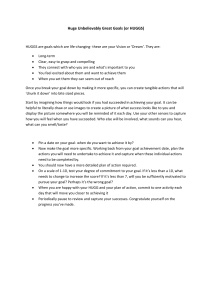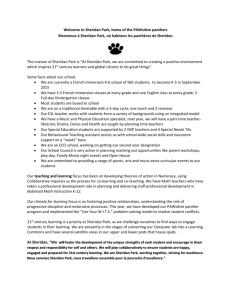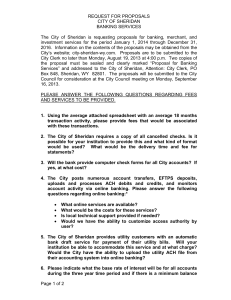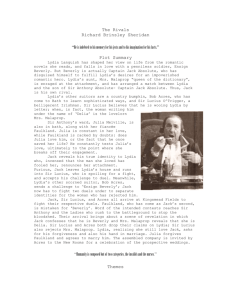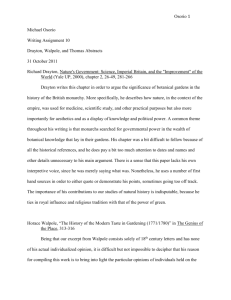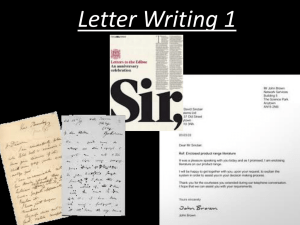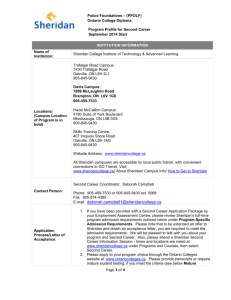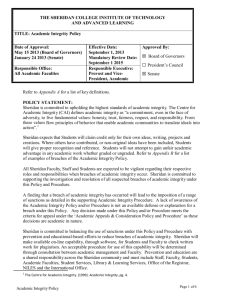Sentimental vs. Laughing Comedy - Mrs
advertisement
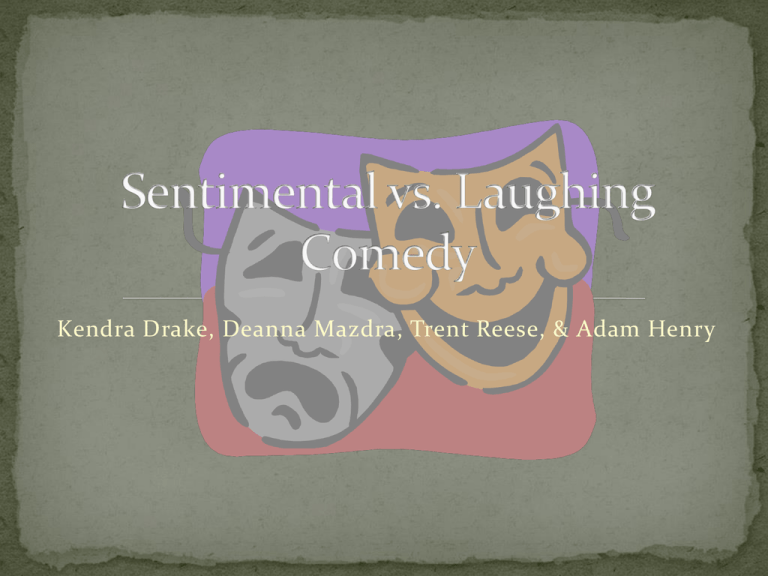
Kendra Drake, Deanna Mazdra, Trent Reese, & Adam Henry 1714 Queen Anne died, succeeded by George I 1721 Robert Walpole is made king’s chief minister 1727 George I died, succeeded by his son George II 1742 Walpole resigned from office 1756 The Seven Years War between England and France began 1760 George II died, succeeded by George III Government was divided into two parties Whigs Tories A dramatic genre of the 18th Century Aimed at producing tears rather than laughter Gained popularity Dominated stages Supporters of the genre James Lynch Critics Benjamin Victor Oliver Goldsmith Two elements influenced theater Drama turned full attention to the daily problems of its middle-class audiences. Provided the underpinnings of the full-fledged melodrama The London merchant by George Lillo The Recruiting Officer by George Farquhar Sir Richard Steele Born March 12, 1672 Irish writer and Politician Educated at the Charterhouse School Served in the British army First play The Christian Hero circa 1701 The became a dramatist and achieved some success Was appointed a position in the house of Prince George of Denmark Wrote over 400 letters to his second wife Mary. Founded 2 magazines- The Talter and The Spectator Became a member of Parliament in 1713 Knighted by George I of Great Britain Given responsibility over to the Theatre Royal, Drury Lane, London. Retired in 1719 Died September 1, 1729 How did it come about on the stage? What made it so important in today’s society? Richard Brinsley Sheridan Born October 30, 1751 Irish playwright and politician Son of an actor/manager Educated at Harrow School for Law Quite school and eloped at 21 and began a career in entertainment First play The Rivals January 17, 1775 Directed his masterpiece School for Scandal in 1777 In 1778 he became owner of the Drury Lane Theatre Entered politics in 1780 A whig politician and great public speaker left politics in 1812 Died in poverty July 7, 1816 The School for Scandal by Sir Brinsley Sheridan The Rivals by Sir Brinsley Sheridan
